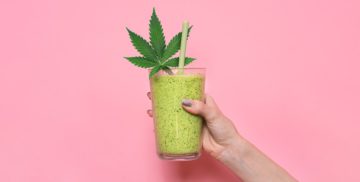Diabetes is a progressive disease that has irreversibly changed the lives of over 4 million people in the UK. There is no cure and it cannot be vaccinated against. However, hope may be restored as scientists and researchers look to add diabetes treatment to CBD oils vast medicinal repertoire.
In fact, this year, a South Pacific island has put in place a diabetes management program using CBD oils rather than insulin to treat its 50,000 diabetic population.
The people of Vanuatu, a group of islands East of Australia, are in the midst of a diabetes pandemic and have turned to CBD oil, the powerful yet safe cannabinoid from the cannabis plant, in an attempt to avert a national crisis.
In order to understand how and why this mammoth undertaking came about and why this potent plant extract shows such promise in treating diabetes, we must first understand what exactly it is we are dealing with.
What Is the Difference Between Type 1 and Type 2 Diabetes?
Diabetes is a disorder that affects blood sugars in the body. When we eat food carbohydrates are turned into glucose (sugar) which is the body's main energy source.
Glucose then travels in the blood (known as blood sugars) to replenish cells, but it can only gain entry to these cells when the hormone insulin is released to unlock them.
In diabetics either the pancreas is not producing enough insulin or the cell walls are not accepting it. Type 2 is the more common form of diabetes, affecting 95% of diabetics with around 5% having type 1, most often diagnosed in children and teens.
Type 1 Diabetes
Type 1 diabetes is an autoimmune disease that causes the body's own immune system, responsible for fighting off foreign pathogens, to attack healthy cells that produce insulin.
With no insulin being produced, the cell walls remain closed and the body does not get the energy it needs to survive. As a result, type 1 diabetics face a depressing, rigorous, daily labour of injecting insulin, all the while constantly monitoring blood sugar levels.
Type 2 Diabetes
Type 2 diabetes is a result of either the pancreas not producing enough insulin, known as insulin deficiency or when the cell wall receptors of the body ignore the chemical signal from insulin to open. This results in excessive sugar levels in the blood which can be life-threatening.
Invasive insulin injections and pharmaceutical drugs with terrible side effects are the daily routine for patients which is why there is great interest in CBD as a potential alternative.
What Effect Can CBD Have on Diabetes
The decision to set up clinics and dispensing pharmacies on the Vanuatu islands was not undertaken on a whim but on a significant amount of compelling research-based evidence that suggests cannabidiol might in fact be able to treat or cure diabetes.
- Researchers in Isreal treated non-obese diabetic mice with CBD which significantly reduced the incidence of diabetes from 86% in non-treated control mice to an incidence of 30% in CBD treated mice.
- These researchers also showed that CBD can inhibit and delay insulitis, a disease of the pancreas where beta cells (which produce insulin) are mistakenly destroyed by the immune system cells known as leukocytes (white blood cells).
- Canadian researchers showed that CBD reduced leukocyte activation in non-obese diabetic mice resulting in less damage to insulin-producing beta cells.
- When the insulin-producing beta cells are attacked they cause the pancreas to become inflamed which can be life-threatening. Cannabidiol which is well known for its anti-inflammatory properties was shown to reduce markers of inflammation in the microcirculation of the pancreas of non-obese diabetic mice.
- Insulin acts as a chemical messenger instructing cell walls to open to absorb glucose but in type 2 diabetes the cell walls ignore the message, often in tandem with abnormal secretions of proinflammatory cytokines. Researchers at Hadassah university hospital showed how CBD can reduce these cytokines in non-obese diabetic mice.
What Is CBD?
Cannabidiol or CBD as it is more commonly referred is a potent compound from the cannabis plant that is attributed to a myriad of medicinal benefits by interacting directly or indirectly with receptors located throughout the body.
It is non-psychoactive and as such, no amount of this cannabinoid will result in the euphoric ‘high’ feeling typically associated with cannabis.
CBD is safe and has been proven in clinical trials to reduce seizures resulting in it being classified as a medicine for epilepsy. But due to 100 years of cannabis prohibition, research into its effects on other human conditions is sparse.
Thankfully pioneers in the field of pharmacology have shown us the potential of this plant and also any potential side effects also.
What Are the Side Effects of CBD?
The cannabis plant has been documented for thousands of years for both its medicinal uses and its superior safety profile. In 2017 researchers at the Nova institute Hurth, Germany concluded that “CBD has a better side effect profile in comparison to ‘traditional’ drugs.”
One large case series looking at 103 adults who used CBD for sleep and anxiety issues showed that only 2 people reported a side effect, which was fatigue.
In fact, the mild side effects displayed below were from epilepsy patients who took CBD in the form of epidiolex which happens to have other ingredients in it also.
Potential side effects:
- Potential drug on drug interactions
- Tiredness
- Diarrhoea
- Changes in appetite/weight.
Drug on drug interactions: Cannabidiol may interact with enzymes in your liver potentially increasing or decreasing pharmaceutical drugs. Patients on medication should consult their doctor prior to use.
Interestingly this is not necessarily a negative as in one 13 week study of children, CBD increased the bioavailability of the anti-epileptic drug and in turn reduced the dosage required resulting in fewer side effects.
Tiredness: CBD oil is being used to aid sleep and as such larger doses may bring on some drowsiness. 21% experienced tiredness using epidiolex.
Diarrhoea: 10% of epilepsy participants who received epidiolex reported diarrhoea.
Changes in Appetite/Weight: 16% of participants reported reduced appetite with 2% reporting weight loss.
Can CBD Affect Blood Sugars?
There is little evidence to show that CBD alone can affect blood sugar levels but researchers from Nottingham showed that another non-intoxicating cannabinoid tetrahydrocannabivarin (THCV) “significantly reduced glucose plasma”.
THCV has also been shown to be an appetite suppressant that may help reduce obesity, a common link with type 2 diabetes.
Some researchers believe that the cell walls do not open as a result of cytokines released, reducing the amount of glucose that can be absorbed. CBD potential to reduce these cytokines may support increased glucose absorption into the cell walls resulting in less glucose in the blood.
Do CBD Edibles Contain Sugar?
That really depends on the edible, some do and some don't. Edibles come in a wide variety of food and drinks. It is important to check the packaging to be sure. There are edibles that contain no sugar such as hummus, tea, water, oat bars, etc.
For those who do not want to risk eating edibles for fear of hidden sugars, you should look for tinctures, capsules, e-liquids, etc, all of which have no sugar.
Diabetes Symptom Management and CBD
Further research is required into the full potential of this cannabinoid but existing research suggests CBD and possibly other phytocannabinoids from the cannabis plant may help in managing some of the symptoms associated with diabetes including:
Reduce Blood Sugar. CBD in conjunction with THCV may help reduce blood sugar levels.
Pain Relief. CBD interacts with receptors located throughout the body, in particular, the immune system and central nervous system and can potentially reduce the perception of pain by modulating serotonin levels.
Addiction & Obesity. Type 2 diabetes is heavily linked to obesity. CBD and THCV have been shown to reduce addictive like behaviors and suppress appetite which may reduce obesity and in turn the risk of diabetes.
Anxiety. CBD has been shown to reduce anxiety, something people with diabetes may have as a result of the fear of hypoglycemia and hyperglycemia.
Depression. CBD has been shown in numerous animal studies to have anti-depressant and anti-anxiety effects. Living with diabetes can be a struggle but this unique compound may help combat depression.
Conclusion
Cannabidiol is a remarkable cannabinoid that shows great promise in treating and maybe even curing diabetes in the future. That said there is clearly a requirement for clinical trials to commence to truly evaluate its full potential.
Studies show it has the potential to alleviate, manage, and may even help prevent diabetes.
As it stands, research and science are still playing catch up against the ill wind of prohibition. But thankfully because CBD is seen as a food supplement rather than a medicine, access is available throughout the UK.
Diabetics are 1-3 times more at risk of heart disease and stroke and diabetes is the most common reason for kidney failure, blindness, and nontraumatic amputations. These harrowing risks should be enough to push clinical trials ahead regardless of costs.
Anyone considering CBD oil as a preventative, alternative or complementary therapy should consult with their doctor and only purchase products from manufacturers who can supply a 3rd party certificate of analysis to confirm its quality.
Diabetics have to make an extra 200 decisions on average per day, but if patients who take CBD oil share their experiences, everyone can learn about the potential of this wonderous cannabinoid, reduce their number of decisions and maybe increase their quality of life.


















